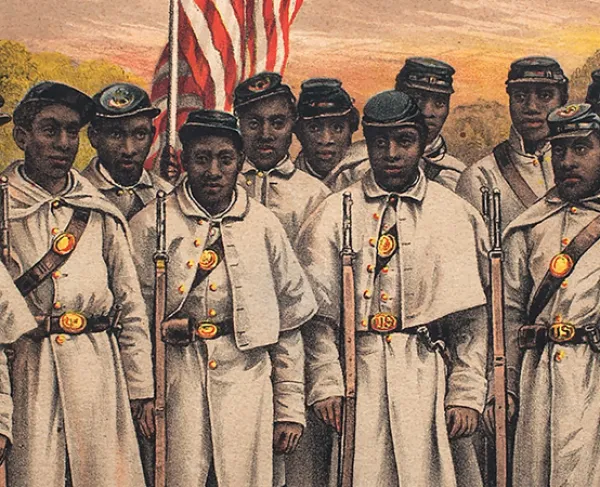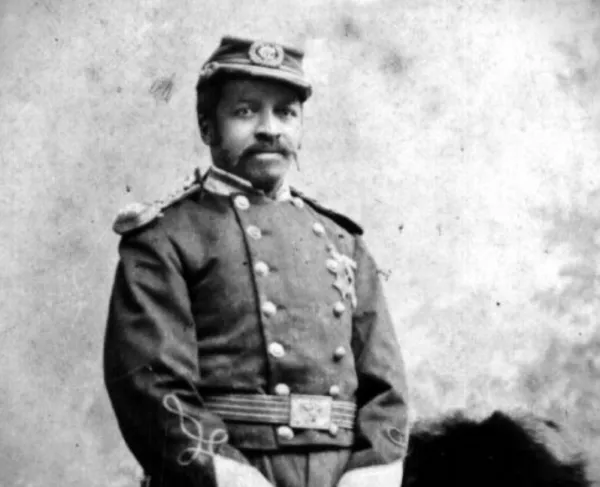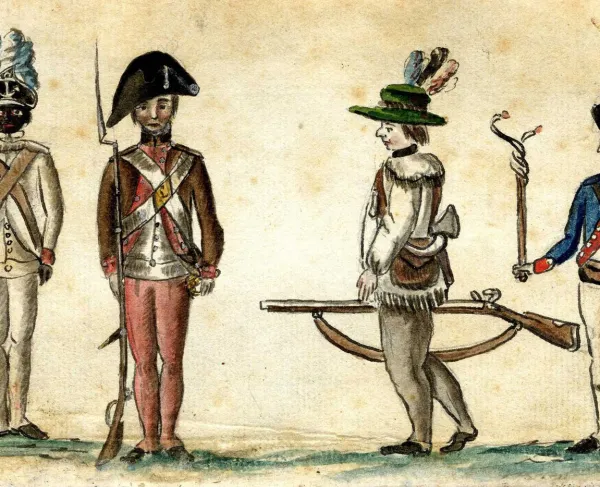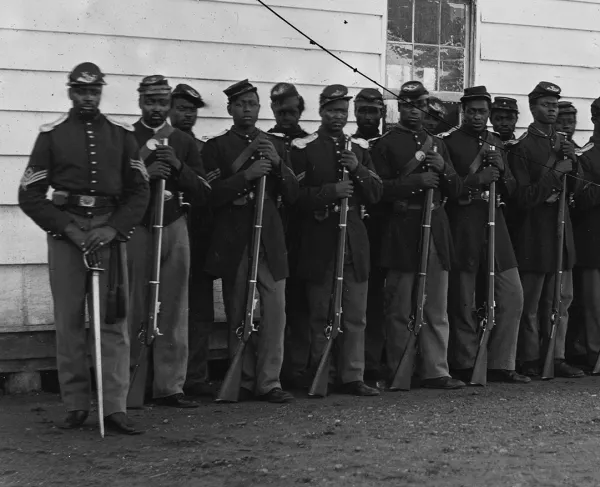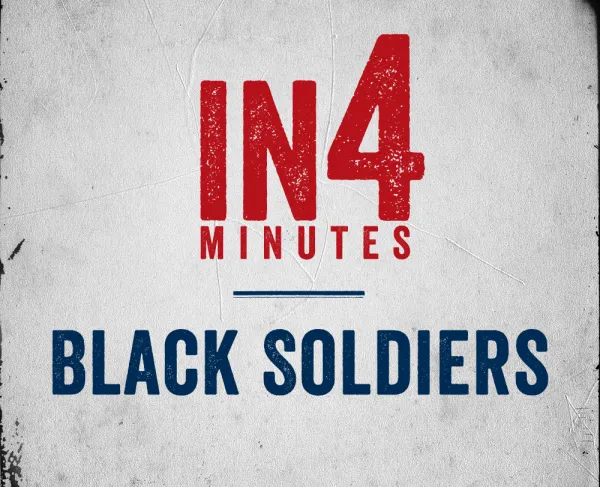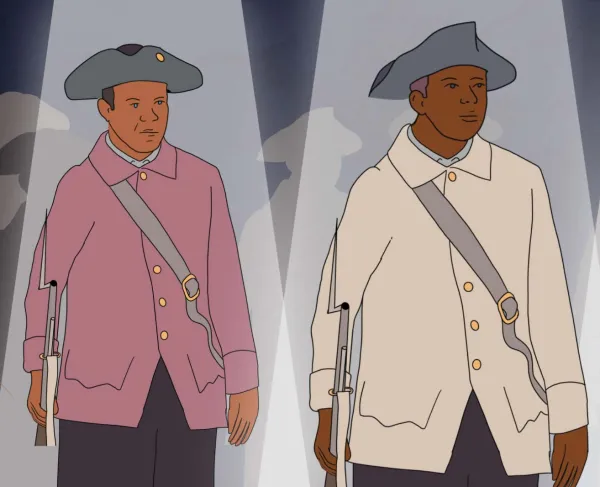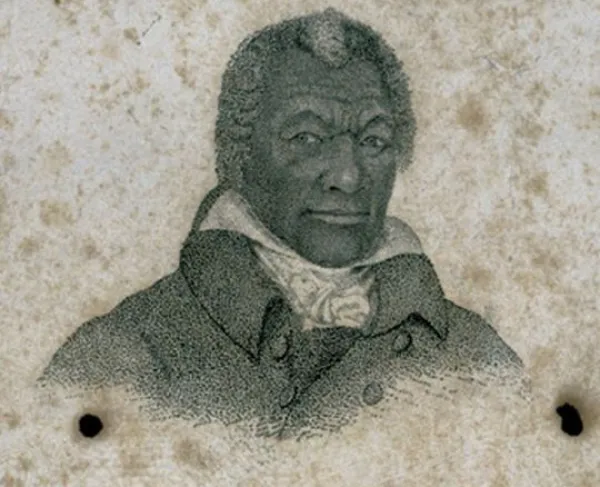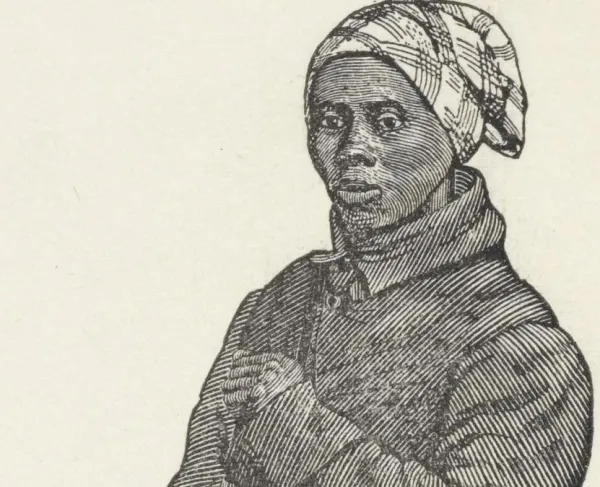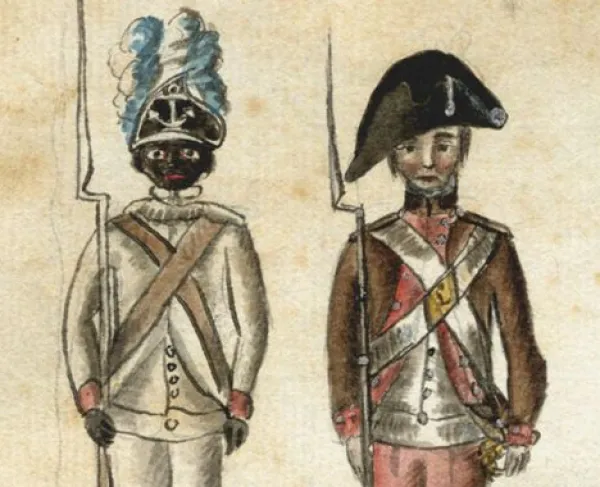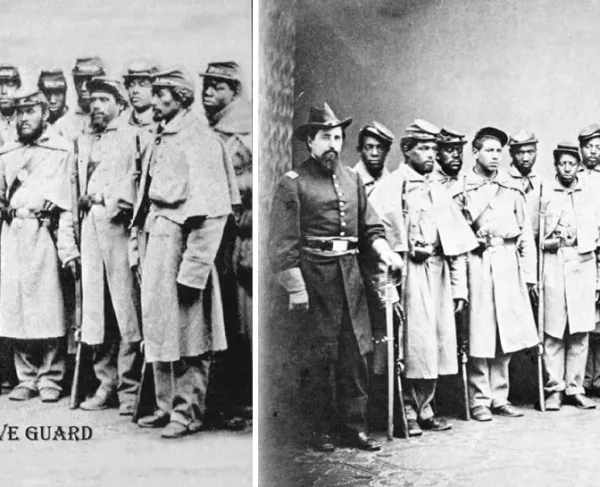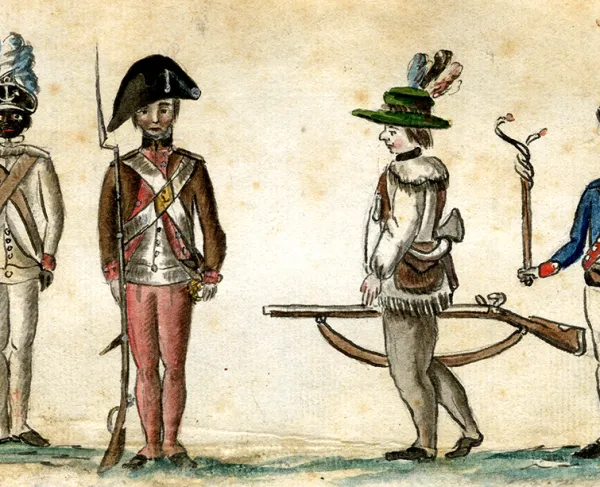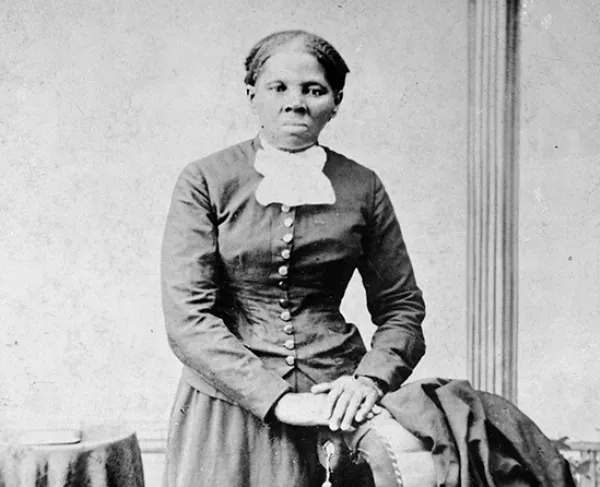
African Americans in America's Wars
Just as the American Civil War is often conceptualized as a conflict between white northerners and white southerners, during which black slaves and free people waited on the sidelines for their fates to be decided, the Revolutionary War and the War of 1812 tend to be portrayed as stories for and by white Americans and their British opponents. From the very beginning of our nation's history, however, African American knew better, recognizing that these fights were their fights.
In 1861, Harris Jarvis, a slave on Virginia’s Eastern Shore, found himself under the thumb of a particularly cruel master. Reflecting back later in life, he said that his master “was the meanest man on all the Eastern shore, and that’s a heap to say...It was bad enough before, but after the war came, it was worse than ever. Finally, he shot at me one day, and I reckoned I’d stood it about as long as I could.”
Courageously fleeing his master, Jarvis made his way to Fortress Monroe, where he spoke to Union General Benjamin Butler. Jarvis recalled, “I went to him and asked him to let me enlist, but he said it wasn’t a black man’s war. I told him it would be a black man’s war before they got through.” Subsequent to his rejection by Butler, Harry Jarvis chose to emigrate to Liberia in Africa. After a change of heart, however, he returned to the United States and after landing in Boston in 1863, he “found that it had got to be black man’s war for sure.” Enlisting in the Fifty-Fifth Massachusetts, the sister regiment of the famous Fifty-Fourth, he served in the Union Army until losing a leg at the Battle of Folly Island.
Peruse our collection and learn more about the stories of forgotten African American heroes such as Harry Jarvis.
Explore the History
James Armistead Lafayette
10 Facts: Harriet Tubman
Fighting For Freedom: African Americans Choose Sides During the American Revolution
Black Confederates: Truth and Legend
10 Facts: Black Patriots in the American Revolution
Harriet Tubman
More About African Americans in America's Wars
- The Narrative of Sojourner Truth »
- Freedmen and the Civil War »
- The Color of Bravery: United States Colored Troops in the Civil War »
- USCT Soldiers Proved Their Heroism at New Market Heights »
- Black Confederates: Truth and Legend »
- African Americans in the Armed Forces Timeline »
- 10 Facts: Harriet Tubman »
- Christian Fleetwood's Medal of Honor »
- The British Corps of Colonial Marines »
- Frederick Douglass »
- Phillis Wheatley »
- African Americans and the War for Independence »
- African Americans and the Revolution »
- Fort Wagner and the 54th Massachusetts Volunteer Infantry »
- James Armistead Lafayette »
